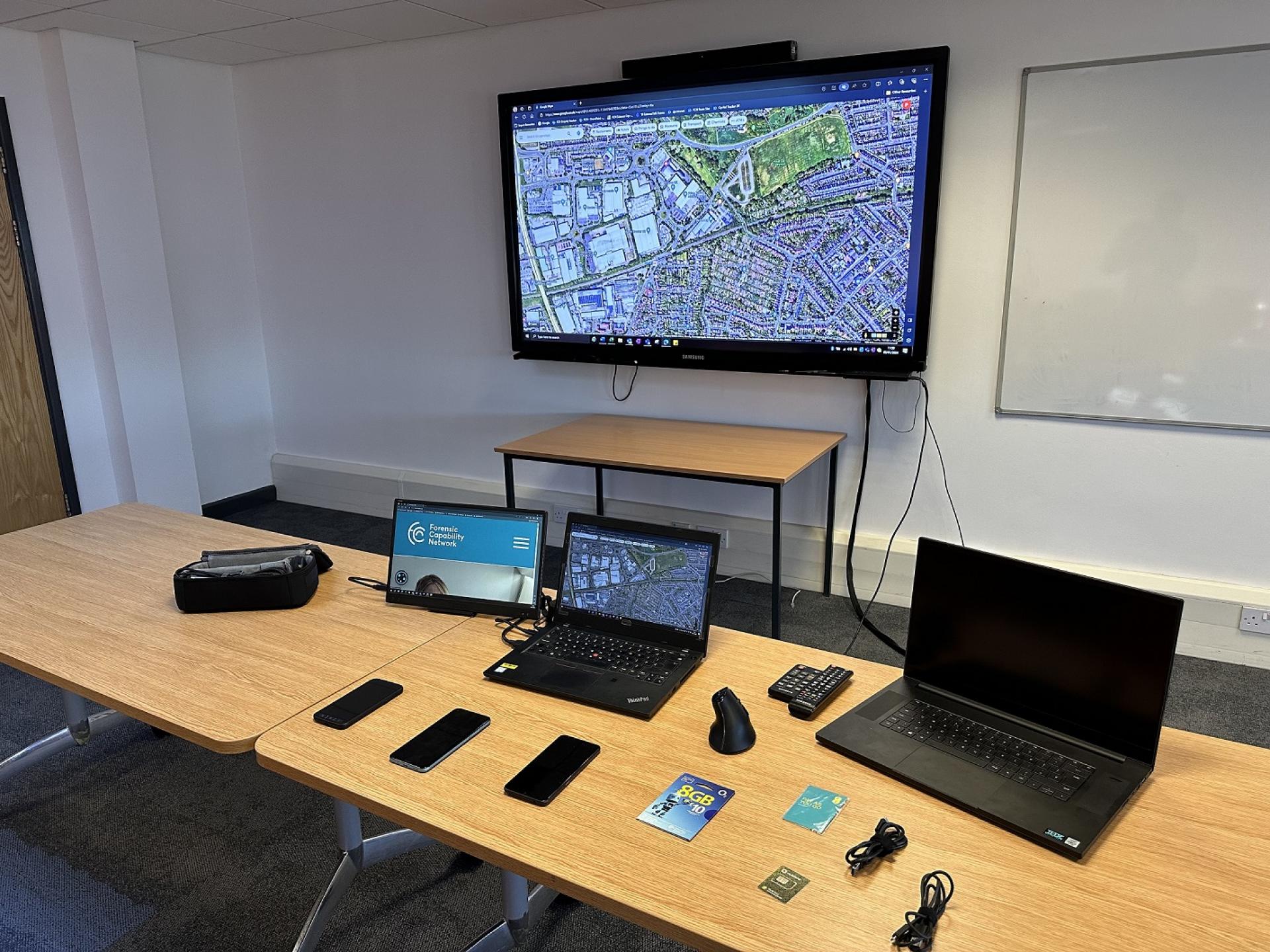13th June 2025

Law enforcement agencies which conduct Cell Site Analysis for Geolocation using Radio Frequency Propagation Surveys (RFPS) are now taking part in a national collaborative learning exercise organised and facilitated by FCN, with subject matter expertise provided by the Radio Frequency Development User Group (RFDUG).
The exercise started in January after organisations expressed an interest in participating in November 2023.
Cell site analysis is a forensic technique used to determine the approximate location of a device (e.g. a mobile phone) for a given time period of telecommunication activity such as calls, texts, or other data transmissions. It relies on the understanding that mobile phones communicate with nearby cell towers, which cover specific geographic areas. Call Data Records (CDR) obtained from network providers (e.g. O2, Vodafone, EE, Three) are examined to determine which cells a device was connected to at a given period. Radio frequency propagation surveys (RFPS) are undertaken to measure cell coverage and match them against call data. This information helps to approximate the phone's location, aiding in criminal investigations. It's particularly valuable for corroborating or contesting alibis, establishing a suspect's location at a given time of interest, or understanding a person's movements.
Participation in an interlaboratory exercise provides a mechanism for teams conducting RFPS to monitor the validity of their examinations and to monitor their performance against their own requirements and the performance of other forensic units.
The process works by the facilitator/host of the exercise making test calls, sending messages and other communication-based data using a mobile phone that has connection to a network provider. On completion of the test calls, the call data records (CDR) are obtained using the appropriate powers from the network providers. The records are then shared with participants along with a crime scenario. Participants will review the scenario and conduct the relevant cell site analysis activities using their usual policies and procedures, which is then centrally reviewed by FCN with cell site community support. A collaborative learning workshop will be held to discuss the exercise outcomes.
During January, FCN’s digital forensic experts created the test data for the pilot collaborative learning exercise. RFDUG have provided subject matter expertise, specialist equipment, and obtained the call data records (CDR) to support the exercise.
Finalised instructions, along with the CDR and submission form have been provided via email to participating organisations, and the exercise is now live for participants to commence RFPS activities.
The exercise timeline is shown below.
